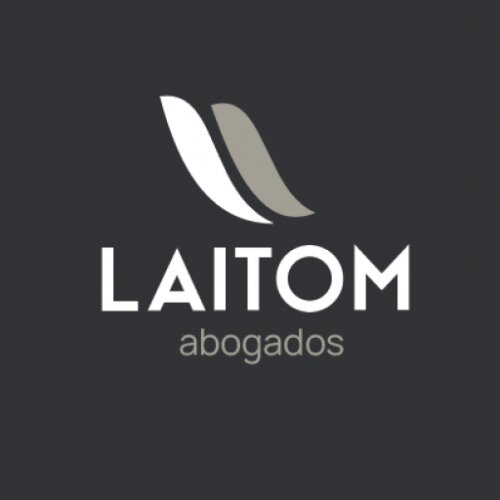Best Collaborative Law Lawyers in Madrid
Share your needs with us, get contacted by law firms.
Free. Takes 2 min.
Free Guide to Hiring a Family Lawyer
List of the best lawyers in Madrid, Spain
About Collaborative Law in Madrid, Spain
Collaborative Law in Madrid, Spain is a cooperative approach to resolving legal disputes without going to court. It involves both parties and their lawyers working together in a series of meetings to find mutually acceptable solutions. This method can be less stressful, less time-consuming, and more cost-effective than traditional litigation.
Why You May Need a Lawyer
You may need a lawyer in Collaborative Law in Madrid, Spain if you are going through a divorce, child custody dispute, or any other legal matter where collaboration and negotiation are essential. A lawyer can provide guidance, legal advice, and representation throughout the process to ensure your rights are protected.
Local Laws Overview
In Madrid, Spain, collaborative law is governed by specific regulations and guidelines to ensure a fair and transparent process. It is important to be aware of these local laws to navigate the collaborative law process effectively. Key aspects include the requirement for both parties to engage in good faith negotiations and the confidentiality of information shared during the collaborative process.
Frequently Asked Questions
1. What is the difference between collaborative law and mediation?
Collaborative law involves both parties having their own lawyers present during negotiations, while in mediation, a neutral third party facilitates discussions. Collaborative law also allows for more direct involvement in the decision-making process.
2. How long does the collaborative law process typically take?
The timeline for collaborative law can vary depending on the complexity of the case and the willingness of both parties to cooperate. On average, it can take several months to reach a resolution.
3. Can I still go to court if the collaborative law process fails?
If the collaborative law process fails to reach a resolution, both parties will need to seek new legal representation if they decide to pursue litigation in court.
4. Is collaborative law legally binding in Madrid, Spain?
Yes, any agreements reached through the collaborative law process are legally binding once formalized and signed by both parties.
5. What are the benefits of collaborative law over traditional litigation?
Collaborative law offers a more amicable and cooperative approach to resolving legal disputes, which can result in a quicker and less expensive outcome compared to traditional litigation.
6. How are legal fees typically handled in collaborative law cases?
In collaborative law cases, both parties are responsible for their own legal fees, which can help minimize conflicts over financial matters.
7. Can I use collaborative law for any type of legal dispute?
Collaborative law is often used for family law matters such as divorce and child custody disputes, but it can also be applied to other civil disputes where cooperation and negotiation are key.
8. What qualifications should I look for in a collaborative law attorney in Madrid, Spain?
Look for an attorney who is experienced in collaborative law and has a track record of successful resolutions. It is also important to choose someone who you feel comfortable working with and who understands your unique situation.
9. Are there any specific requirements for participation in collaborative law in Madrid, Spain?
Both parties must voluntarily agree to participate in the collaborative law process and be willing to engage in open and honest discussions to reach a resolution.
10. How can I prepare for a collaborative law meeting?
Prior to a collaborative law meeting, gather all relevant documents and information related to the dispute. Be prepared to discuss your goals and priorities for the resolution and be open to listening to the other party's perspective.
Additional Resources
If you are in need of legal advice for collaborative law in Madrid, Spain, consider reaching out to the Madrid Bar Association or any local legal aid organizations that specialize in collaborative law. These resources can provide further information and guidance on how to proceed with your case.
Next Steps
If you require legal assistance in collaborative law in Madrid, Spain, the first step is to consult with a qualified collaborative law attorney who can assess your situation and provide personalized advice. Be sure to communicate your goals and concerns openly and honestly throughout the process to achieve the best possible outcome.
Lawzana helps you find the best lawyers and law firms in Madrid through a curated and pre-screened list of qualified legal professionals. Our platform offers rankings and detailed profiles of attorneys and law firms, allowing you to compare based on practice areas, including Collaborative Law, experience, and client feedback.
Each profile includes a description of the firm's areas of practice, client reviews, team members and partners, year of establishment, spoken languages, office locations, contact information, social media presence, and any published articles or resources. Most firms on our platform speak English and are experienced in both local and international legal matters.
Get a quote from top-rated law firms in Madrid, Spain — quickly, securely, and without unnecessary hassle.
Disclaimer:
The information provided on this page is for general informational purposes only and does not constitute legal advice. While we strive to ensure the accuracy and relevance of the content, legal information may change over time, and interpretations of the law can vary. You should always consult with a qualified legal professional for advice specific to your situation.
We disclaim all liability for actions taken or not taken based on the content of this page. If you believe any information is incorrect or outdated, please contact us, and we will review and update it where appropriate.












